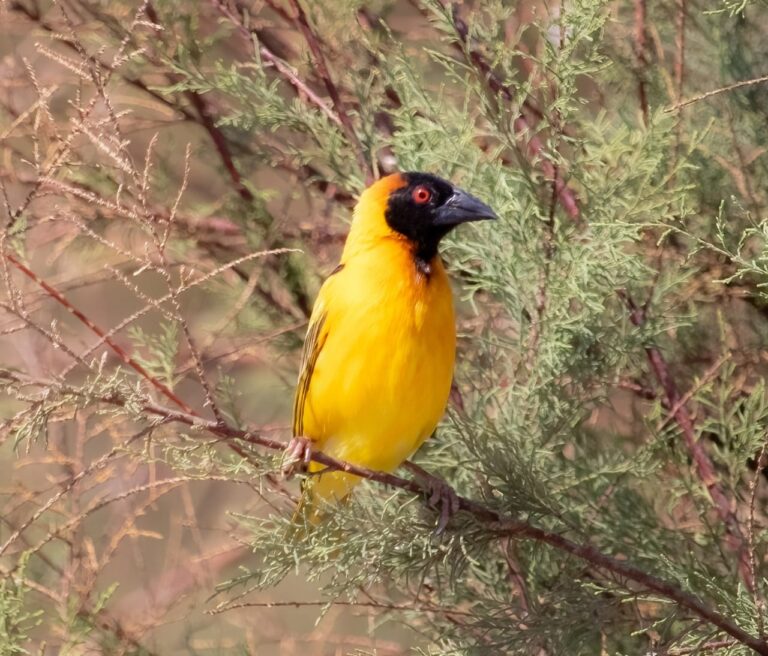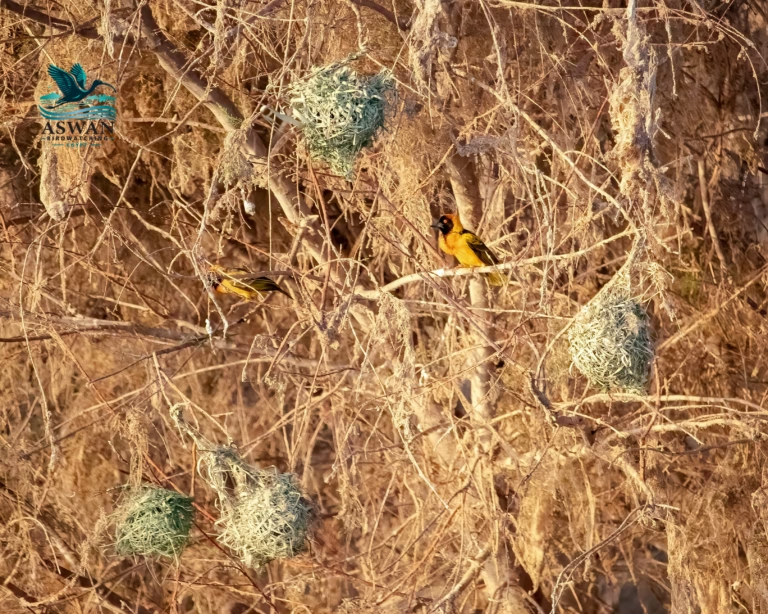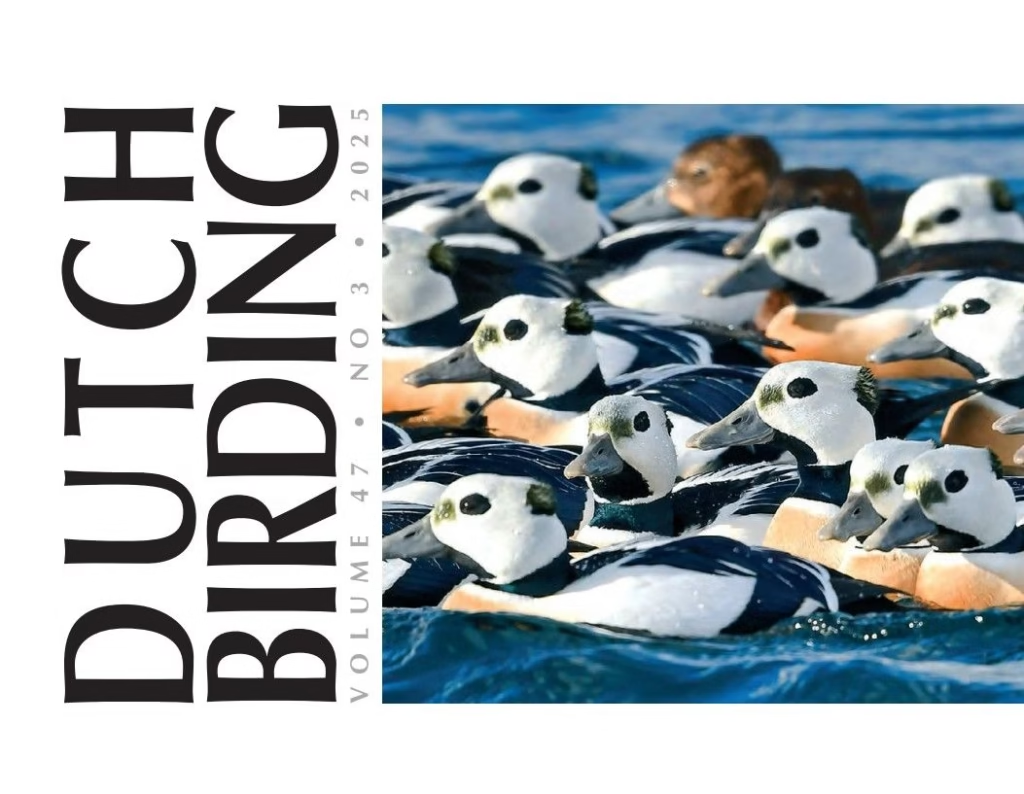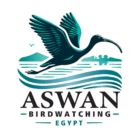We’re excited to share some groundbreaking news from the southern reaches of Egypt—an extraordinary discovery has just been made on the shores of Lake Nasser near Abu Simbel. For the very first time, Village Weaver (Ploceus cucullatus) has been officially recorded breeding in Egypt!

This milestone was achieved through the collaborative efforts of two separate ornithological expeditions, which brought together dedicated researchers from Germany and Egypt. As a proud member of the Egyptian team, I had the privilege of contributing to this important find, led on the Egyptian side by Nature Conservation Egypt (NCE) under the guidance of Haitham Mossad.
A New Chapter in Egypt’s Birdlife
This discovery marks the addition of a new breeding species to Egypt’s avifauna, and it’s a testament to the growing ecological value of Lake Nasser—a region already recognized as an Important Bird Area (IBA).
The surveys of August 2024 (German expedition led by Jens Hering) and January 2025 (Egyptian team led by Haitham Mossad) recorded between 15 to 20 breeding pairs, with 63 active nests observed. These findings are not only exciting scientifically, but also a sign of the success of ongoing conservation efforts in this vast desert lake ecosystem.

Why Lake Nasser Matters
Lake Nasser is increasingly becoming a hotspot for Afrotropical bird species, reinforcing its value as a destination for both scientific research and responsible birdwatching tourism. This discovery supports the case for increased protection of the area and the promotion of eco-tourism, particularly for visitors who appreciate the rich biodiversity of Egypt’s lesser-known natural areas.
A Proud Moment for Conservation and Collaboration
Being part of the team that confirmed the first-ever breeding record of Village Weavers in Egypt is a personal and professional highlight. It demonstrates what can be achieved when local conservationists and international researchers come together with a shared passion for protecting wildlife.

More details about the new record in Dutch Birding

Pingback: Exclusive: Crimson‑Rumped Waxbills Cooling Off in Lake Nasser
Pingback: 10 facts about Lake Nasser in Aswan » Bird Watching in Aswan
Pingback: Top 10 bird species to spot on Lake Nasser
Pingback: Lake Nasser jewels: Birding Trip Report July 2025
Pingback: Watching, Not Killing: Bird Hunters Are Ruining Birdlife in Aswan
Pingback: The Village Weaver: Africa’s Master Builder